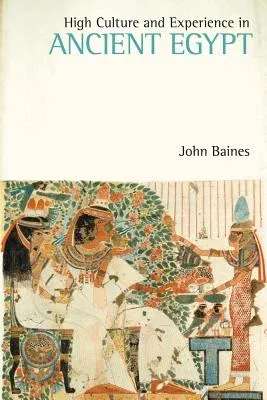John D Baines
(Author)High Culture and Experience in Ancient EgyptHardcover, 31 December 2011

Qty
1
Turbo
Ships in 2 - 3 days
In Stock
Free Delivery
Cash on Delivery
15 Days
Free Returns
Secure Checkout

Part of Series
Studies in Egyptology and the Ancient Near East
Print Length
448 pages
Language
English
Publisher
Equinox Publishing (UK)
Date Published
31 Dec 2011
ISBN-10
1845533003
ISBN-13
9781845533007
Description
Product Details
Author:
Book Format:
Hardcover
Country of Origin:
US
Date Published:
31 December 2011
Dimensions:
23.62 x
16.26 x
3.05 cm
ISBN-10:
1845533003
ISBN-13:
9781845533007
Language:
English
Location:
Sheffield
Pages:
448
Publisher:
Weight:
839.15 gm